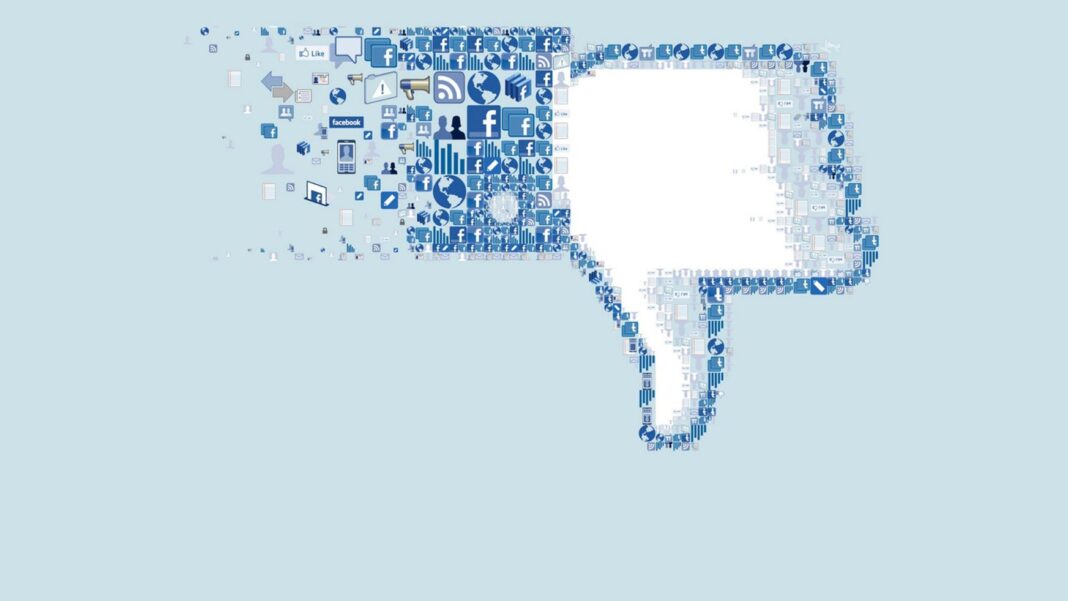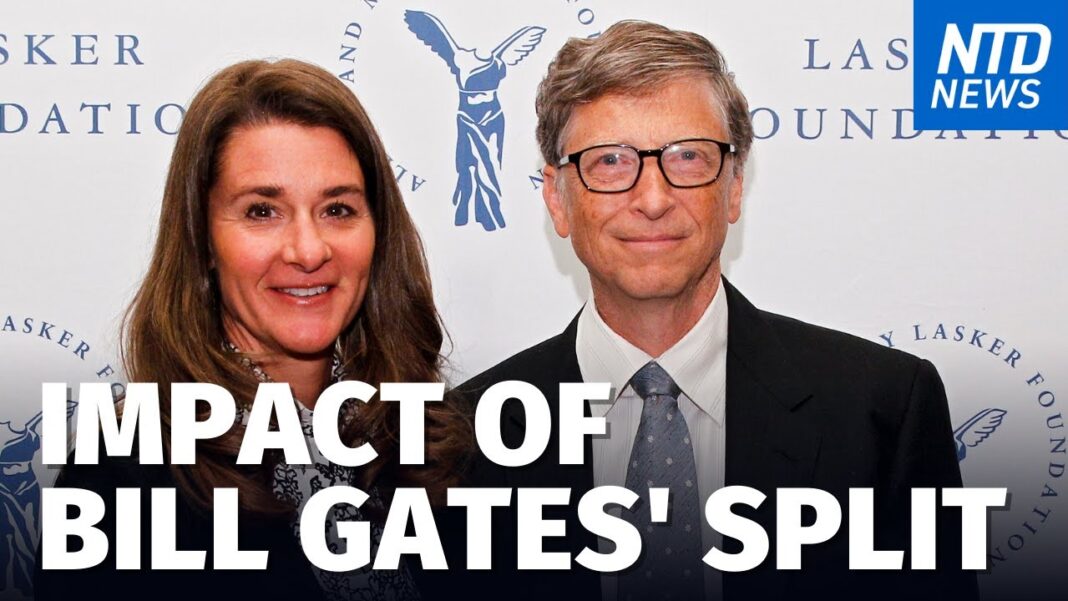
Over the last several decades, small business formation in the U.S. has plummeted, harming economic growth and local economies.[1] This has occurred, in large part, due to unfair competition and the power of monopolies, including big tech corporations such as Facebook and Google.[2]
But now, facing several antitrust suits and the realistic threat of break-ups, Google and Facebook are trying to portray themselves as vital boosters of America’s small businesses, especially during the COVID-19 pandemic. COO Sheryl Sandberg has called Facebook a “lifeline for businesses,” while Google CEO Sundar Pichai has written that “At Google, we see it as our job to help small businesses leverage the power of technology.” [3]
The truth is very different. “It’s less harmful to piss off the government than piss off Google,” said one small businessman in Chicago last year to the Wall Street Journal. “The government will hit me with a fine. But if Google suspends my listings, I’m out of a job. Google could make me homeless.”[4]
The stories are endless. From businesses fearing arbitrary delisting, to the proliferation of scams and counterfeiting, to a lack of customer service for small businesses dependent on their core infrastructure, Google and Facebook inspire terror across the commercial landscape. Investors even use the term “kill zone” to describe the inability of new businesses in sectors occupied or adjacent to these monopolists to access capital.
This memo details the ways that Google and Facebook, respectively, harm small businesses. Policymakers should engage in robust antitrust enforcement and legislative remedies to reduce and eliminate these harms.
- Big brands dominate Google search and ad purchases. Major corporations such as Amazon find it much easier to rise to the top of Google search rankings. Placement in those rankings is key because Google has monopolized the search market, and very few searchers look past the first few Google results.[5] Those big brands receive top rankings even when their content is less relevant to searchers’ queries, or when the websites of those major corporations have features users dislike such as auto-play videos and popups.[6] The Google ad market is similarly dominated by large corporations; small businesses can see their costs spiral out of control if they attempt to spend enough on ads to receive prominent Google ad placement.[7] This is essentially a tax on small businesses and startups: Without paying Google, they can’t acquire customers.
- Google arbitrarily bans entire sectors from search advertising. Google uses concern about scams to prevent entire industries, such as independent tech repair shops, from purchasing ads on its search properties.[8] As there is no real alternative to Google’s search, this effectively renders these businesses invisible on the internet. Some repair shops reported a 70 percent decline in revenue following Google’s decision to ban their ads.[9] Google, however, still allows manufacturer-owned repair shops, such as those owned by Apple, to advertise.[10]
- Google’s self-preferencing deprives local businesses of customers. In order to sell more advertising and harm its search competitors, Google sends users searching for local businesses to Google Maps or Google Shopping, even if another vertical such as Yelp or TripAdvisor has better or more comprehensive local listings and information. Studies have shown users prefer what Google’s algorithm would naturally show, rather than what it shows when Google self-preferences.[11]
- Google’s ad markets are opaque and expensive. Google’s monopolies of both online search and digital advertising technology mean it can create opaque markets where small businesses don’t understand the true cost or effectiveness of their advertising. As one small business owner wrote, “We set up a budget ‘suggested’ by Google that’s based on ‘recommendations’ of key words made by Google who then mysteriously displays our ads wherever Google chooses, which then drains our budget and then—here’s the kicker—Google reports back to us how our money was spent…by Google…on clicks and views and other things that we have no way of validating.”[12] Google forces small advertisers to stay locked into its advertising network, as opposed to routing them to cheaper networks, raising their costs.[13]
- Google steals content from small businesses and publishers. Google steals and then sells ads against content stolen from other websites and publishers, often via presenting that content in an “answer box” on its own search results page, as opposed to referring users to the creator of the content. For example, Google presents information from the website CelebrityNetWorth.com in its answer boxes, without permission, depriving the site of the traffic necessary for it to sell ads against its own content.[14]
- Google enables the theft of business brands and trademarks. As one small business founder explained, “For years, we’ve been dealing with the problem that Google allows competitors to purchase ads on our trademark, blocking and misdirecting consumers from reaching our site.”[15] The only way to truly circumvent the problem, rather than asking Google to take down every misleading ad, reactively, is to pay to run ads on the same trademark. Essentially, Google forces businesses to pay to bring in customers who were already searching for that specific business.
- Google allows the proliferation of scam small business listings. More than 90 percent of U.S. searches go through Google’s main search engine or its products such as Google Maps or Google Shopping, making it the dominant way in which customers find small businesses. But Google’s size renders it incapable of policing false and fraudulent listings that harm those businesses.[16] Google’s business listings and maps have, according to the Wall Street Journal, millions of false entries that allow scammers to steal the identity of legitimate businesses in order to defraud their customers, in sectors from locksmiths to lawyers to moving companies.[17] Google still profits by selling ads against those listings.
- Google is too large to provide good customer service to small businesses. Small businesses who see their Google listings stolen, buried by scams, or containing incorrect information have a hard time reaching anyone at Google who can help. One small business owner trying to fight scam listings said he was “repeatedly routed to an offshore call center,” where operators“treated [him] like [he was] stupid.”[18] Since Google is the dominant way in which these businesses are found, incorrect information and fighting scam listing cost business owners time and money due to the loss of potential customers.
- Google (and Facebook) cause a “kill zone,” harming innovation. Investors refer to a “kill zone” around Google (and Facebook), refusing to fund startups that operate too closely to them for fear those startups will be copied or destroyed by one of the giants or, at best, acquired and shut down.[19] As one investor told the House Antitrust Subcommittee, “Venture capitalists are less likely to fund startups that compete against monopolies’ core products … As a startup investor, I see this often.”[20]
- Google undermines local news outlets. Google’s ad-based revenue model, built on its search monopoly and vast data collection practices, enabled it to corner the digital ad market (along with Facebook) to the detriment of local journalism outlets, which depend on ad dollars to survive.[21] It also monetizes news outlets’ content without sharing that revenue.[22] Finally, Google’s control of the advertising technology market enables it to act as a middleman between publishers and advertisers, taking a cut at several steps of the process and driving advertisers to its own properties, such as YouTube.[23] As the owners of HD Media, a chain of West Virginia newspapers, said in a lawsuit against Google and Facebook, “There is no longer a competitive market in which newspapers can fairly compete for online advertising revenue.”[24]
- Facebook forces businesses to pay to reach their own customers and fans. Facebook encourages small businesses and artists such as musicians to build Facebook pages, but then limits their reach, forcing those businesses/artists to buy ads to reach the customers and fans they already acquired. As one small business owner said, “I feel that Facebook holds small businesses hostage by only displaying posts on their choice of 10 percent of my followers unless I pay to ‘boost’ posts.”[25] Fan Pages launched in 2007, but by 2012, only 16 percent of posts on those pages were actually reaching fans; by 2014, that had fallen further, to just 6.5 percent.[26]
- Facebook ad markets are opaque and plagued by bots. A majority of small business owners report that Facebook ads don’t reach their intended audience. Instead, Facebook forces small businesspeople to pay more to “boost” posts, and then allows bots to create ad views that small businesses are charged for. “When I have purchased ads on Facebook and viewed the profiles of the ‘clicks’ I’ve received, they haven’t all been valid profiles. They are bots and fake accounts,” one small business owner said.[27]
- Small business owners are subject to the whims of Facebook’s algorithm changes. Facebook’s random algorithm changes can substantially reduce visibility and sales for small businesses, with little warning and no way to deduce the impact before the changes occur. One change “decreased my income from Facebook by 60 percent, overnight. No explanation,” a small business owner told NBC.[28] But because of Facebook’s dominance, there aren’t other avenues for businesses to connect to customers over social media.
- Facebook doesn’t share data gathered from small businesses’ customers. Facebook’s model of ad-based revenue via targeting means it collects vast amounts of data on users who visit small businesses’ pages or publishers’ content. But it doesn’t share that data with those businesses, instead using it to profit through more targeting and ads.[29]
- Facebook allows counterfeiting on its platform. Facebook Marketplace, the platform that allows individuals to connect to buy and sell specific items, is rife with counterfeit items.[30] Facebook is reactive about taking down fake ads, often doing so only when they’re flagged, so small business owners find themselves “in a constant whack-a-mole trying to find the fake ads so they can get Facebook to act.”[31]
- Facebook ad purges harm legitimate small businesses. Facebook uses algorithms to try to crack down on false advertising, but when those purges catch legitimate businesses, Facebook is difficult to contact, costing businesses significant time and money. It also doesn’t tell businesses which specific policy they allegedly violated. As Business Insider reported, “the slow, opaque, and inconsistent customer service Facebook provides to smaller advertisers has left them locked out of their accounts, sometimes for weeks or even months at a time, often costing them tens of thousands of dollars in revenue as they try to get erroneous bans reversed.”[32] Only larger advertisers receive dedicated support from Facebook.[33]
- Facebook acquires startups just to shut them down. Facebook has made 86 acquisitions since 2005.[34] When many of the startups are acquired, including the fitness tracker Moves, the app TBH, and the developer platform Parse, Facebook simply shuts it down to avoid competition.[35] Facebook also uses its data dominance to identify emerging competitors that it can copy or acquire.[36]
- Facebook undermines local news outlets. Facebook’s ad-based revenue model, built on its vast data collection capabilities, enabled it to corner the digital ad market (along with Google) to the detriment of local journalism outlets, which depend on ad dollars to survive. By one estimate, Facebook controls 50 percent of available display ad space in the ad market.[37] Facebook also sells ads against news outlets’ content on users’ news feeds and publishers’ pages.
There are many other harms visited upon small businesses by these dominant corporations, so more research is needed. Regardless, policymakers should move to break up Facebook and Google and use other regulatory and legislative tools to ensure they no longer have the power to arbitrarily bury small businesses or force small business owners to pay ever-larger fees to access the vital networks necessary for modern commerce.
Endnotes
[1]See: Boak, Josh, “A slowdown in US business formation poses a risk to economy,” Associated Press, September 5, 2019, https://apnews.com/article/ e7179fc8b9dc4399818f2038b75ec423;Rupasingha, Anil, “Locally Owned: Do Local Business Ownership and Size Matter for Local Economic Well-being?,” Federal Reserve Bank of Atlanta, Community and Economic DevelopmentDepartment, August 2013, https://frbatlanta.org/-/media/documents/ community-development/publications/discussion-papers/2013/01-do-local-business-ownership-size-matter-for-local-economic-well-being-2013-08-19. pdf; and Fleming, David. A and Stephan J. Goetz, “Does Local Firm Ownership Matter?” Economic Development Quarterly, April 28, 2011, https://journals.sagepub.com/doi/abs/10.1177/0891242411407312
[2]“Investigation of Competition in Digital Markets,” Subcommittee on Antitrust, Commercial and Administrative Law of the Committee on the Judiciary, October 2020,https://judiciary.house.gov/uploadedfiles/competition_in_digital_markets.pdf
[3]“Zuckerberg says regulating Facebook ads will hurt small businesses,” Small Business Connections, August 11, 2020, https:// com.au/zuckerberg-says-regulating-facebook-ads-will-hurt-small-businesses/; Pichai, Sundar, “Google CEO Sundar Pichai: American small business and big business must grow together,” Fox Business, October 3, 2019,https://www.foxbusiness.com/markets/google-ceo- sundar-pichai-american-small-business-big-business-grow-together
[4]Copeland, Rob, and Katherine Bindley, “Millions of Business Listings on Google Maps Are Fake—and Google Profits,” The Wall Street Journal, June 20, 2019,https://wsj.com/articles/google-maps-littered-with-fake-business-listings-harming-consumers-and-competitors-11561042283
[5]Southern, Matt, “Over 25% of People Click the First Google Search Result,” Search Engine Journal, July 14, 2020, https://www.searchenginejournal. com/google- first-page-clicks/374516/#close
[6]Bentley, Matt, “How Google Stacks the Deck Against Startups and Small Businesses,” Entrepreneur, June 7, 2018, https://www.entrepreneur. com/article/313865
[7]Rosenberg, Joyce , “Google ad costs, not its alleged monopoly, irks businesses,” Associated Press, November 10, 2020, https://apnews.com/article/ business-small-business-new-york-9b499cae32d2fecc00cea237f6c0a51f
[8]Graff, David, “Restricting ads in third-party tech support services,” Google Ads and Commerce Blog, August 31, 2018, https://blog.google/ products/ads/restricting-ads-third-party-tech-support-services/
[9]Kan, Michael, “Google Ad Policy Change Leaves Third-Party Repair Industry in a Lurch,” PC Mag, August 8, 2019, https://pcmag.com/news/ google-ad-policy-change-leaves-third-party-repair-industry-in-a-lurch
[10]DeBellis, Alex, “Banning the fix: Google continues blocking third-party repair ads,” S. PIRG, October 30, 2020, https://uspirg.org/blogs/blog/usp/ banning-fix-google-continues-blocking-third-party-repair-ads
[11]Garofalo, Pat, “Close to Home: How the Power of Facebook and Google Affects Local Communities,” American Economic Liberties Project, August 30, 2020,https://economicliberties.us/our-work/close-to-home-how-the-power-of-facebook-and-google-affects-local-communities/
[12]Marks, Gene, “Google’s monopoly is killing small business,” The Hill, August 7, 2019, https://thehill.com/opinion/finance/456543-googles-monopoly- is-killing-small-business
[13]State of Texas al vs. Google LLC, https://www.texasattorneygeneral.gov/sites/default/files/images/admin/2020/Press/20201216%20 COMPLAINT_REDACTED.pdf
[14]Jeffries, Adrianne, “How Google eats a business whole,” The Outline, April 17, 2017, https://theoutline.com/post/1399/how-google-ate- celebritynetworth-com
[15]Written Testimony of David Heinemeier Hansson, CTO & Cofounder, Basecamp, before the Committee on the Judiciary, Subcommittee on Antitrust, Commercial, and Administrative Law,Hearing on: Online Platforms and Market Power, Part 5: Competitors in the Digital Economy, January 17,
[16]Garofalo, “Close to Home”
[17]Copeland and Bindley, “Millions of Business Listings on Google Maps Are Fake—and Google ”
[18]Copeland and Bindley, “Millions of Business Listings on Google Maps Are Fake—and Google ”
[19]Schechter, Asher, “Google and Facebook’s ‘Kill Zone’: ‘We’ve Taken the Focus Off of Rewarding Genius and Innovation to Rewarding Capital and Scale,’” Promarket, May 25, 2018,https://promarket.org/2018/05/25/google- facebooks-kill-zone-weve-taken-focus-off-rewarding-genius-innovation- rewarding-capital-scale/
[20]“Investigation of Competition in Digital ”
[21] Garofalo, “Close to ”
[22]“New Study Finds Google Receives an Estimated $4.7 Billion in Revenue from News Publishers’ Content,” NewsMedia Alliance, June 10, 2019, https:// newsmediaalliance.org/release-new-study-google-revenue-from-news-publishers-content/
[23]Srinivasan, Dina, “Why Google Dominates Advertising Markets Competition Policy Could Lean on the Principles of Financial Market Regulation,” Stanford Technology Law Review,2020, https://papers.ssrn.com/sol3/papers.cfm?abstract_id=3500919
[24]HD Media Company Google LLC and Facebook LLC, United States District Court for the Southern District of West Virginia.
[25]Sophy, “62 Percent of Small Business Owners Say Facebook Ads Miss Their Targets, Weebly ”
[26]Bernazzani, Sophia, “The Decline of Organic Facebook Reach & How to Adjust to the Algorithm,” Hubspot, May 3, 2018, https://blog.hubspot.com/ marketing/facebook-organic-reach-declining
[27]Sophy, Joshua, “62 Percent of Small Business Owners Say Facebook Ads Miss Their Targets, Weebly Reports,” Small Business Trends, January 3, 2017,https://smallbiztrends.com/2017/01/do-facebook-ads-work.html
[28]Barrett, Maura, Michael Cappetta and Jo Ling Kent, “Goodbye Facebook? Why some small businesses are quitting the social network,” NBC, September 3, 2018,https://nbcnews.com/business/business-news/goodbye-facebook-why-some-small-businesses-are-quitting- social-network-n905171
[29]Stoller, Matt, Sarah Miller, and Zephyr Teachout, “Addressing Facebook and Google’s Harms Through a Regulated Competition Approach,” American Economic Liberties Project,April 2020, https://economicliberties.us/wp-content/uploads/2020/04/Working-Paper-Series-on- Corporate-Power_2.pdf
[30]“We tried to see how easy it is to get duped by counterfeit items Here’s what happened.” ABC 25, January 23, 2020, https://www.kxxv.com/ news/25-investigates/we-tried-to-see-how-easy-it-is-to-get-duped-by-counterfeit-items-online-heres-what-happened
[31]Stoller, Matt, “Absentee Ownership: How Amazon, Facebook, and Google Ruin Commerce Without Noticing,” BIG, July 28, 2020, https://mattstoller. com/p/absentee-ownership-how-amazon-facebook
[32]Sonnemaker, Tyler, “Facebook’s AI-fueled attempt to block bad ads is hurting legitimate small business owners — and its ‘pay-to-play’ customer support is leaving them strandedahead of the holiday shopping season,” Business Insider, November 25, 2020, https://businessinsider.com/ facebook-ad-purge-hurting-small-business-owners-holiday-shopping-season-2020-11
[33]Eldon, Eric, “Facebook Clarifies Minimum Spending Requirements for Page Promotions,” AdWeek, February 22, 2010, https://adweek.com/ performance-marketing/facebook-clarifies-minimum-spending-requirements-for-page-promotions/
[34]Big Tech Merger Tracker, American Economic Liberties Project, https://economicliberties.us/big-tech-merger-tracker/
[35]Constine, Josh, “Facebook poisons the acquisition well,” TechCrunch, September 26, 2018, https://techcrunch.com/2018/09/26/m-and-nay/
[36]“Investigation of Competition in Digital ”
[37]“Online platforms and digital advertising,” Competition & Markets Authority, July 1, 2020, https://assets.publishing.service.gov.uk/media/5efc57ed3a6f4023d242ed56/Final_report_1_July_2020_.pdf








